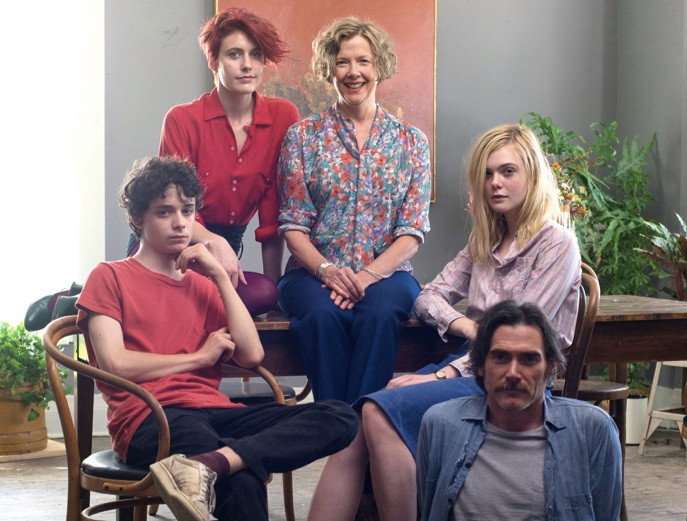By Laurie Coker
Rating: A
Many things delineate a generation – years, decades, the culture and the people. 20th Century Women manages to perfectly depict a period in the past, all the while making its themes feel 21st century relevant. Starring Annette Bening in an award-worthy performance, director Mike Mills’ semiautobiographical story is a showcase of multi-generational talent. Its characters are exquisitely defined and depicted.
Set in 1979, a time of punk rock, bohemian attitudes and feminism, 20th Century Woman looks behind the walls of a simple boarding house belonging to Dorothea Fields, a single mother, to an awkward teenage boy, (Lucas Jade Zumann). Perplexed as to how to guide her son, Jamie, into manhood, Dorothea enlists her tenants help to guide him through some slippery and embarrassing situations. These moments link the characters and draw the focus more to Jamie and less to the women of the century. Still, with multiple generations under one roof, the relationships and stories intrigue.
This cast meshes nicely blending engagingly well and also awkwardly under one roof. While the film’s title denotes something specific, the story is really about a boy coming of age. The two men in the house, Jamie and a handyman, William (Billy Crudup) certainly fall under the shadow of the women in the home to one degree. However, it is Jamie who suffers all the angst, and then some, of being a blooming boy in the midst of forward and diverse women. Julie, played perfectly by Elle Fanning, pulls on Jamie’s heartstrings and toys with his desires – pushing against his growing feelings for her with the “friend” card and inappropriate actions. Zumman and Fanning, too, deserve notice for their parts.
As noted, Bening is flawless and exceptional and Crudup moves brilliantly and subtly alongside her. Dorothea rides the line between traditional and unconventional and William keeps her keel more even. He balances her with little effort and because of this, softens Dorothea a little piece at a time. He doesn’t strip away her strength as a woman, but rather helps her remember the positive aspects of femininity and companionship. Gerwig’s Abby is quirky even beyond the bohemian aspect of the environment and smartly portrayed.
There is an imperceptibly to Mill’s direction, a feeling of pragmatism below the surface of the eccentricity and daily life failings that fill the space between the shabby walls. Dorothea’s boarding house presents an amalgamation of the times and still, it offers up timely themes and clear life messages. Mill’s story, characters and cast deserve and A.
(Image A24)
